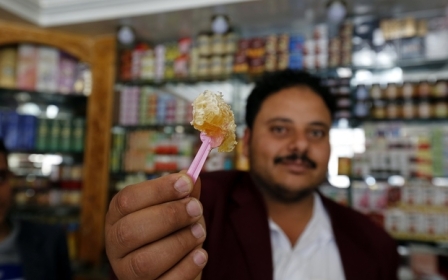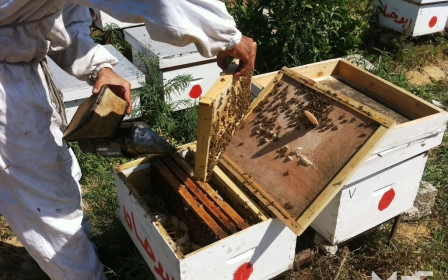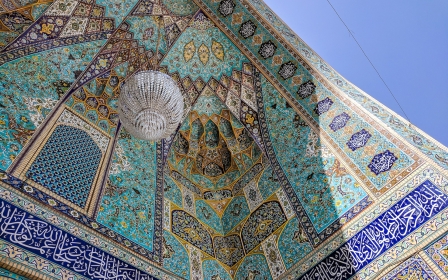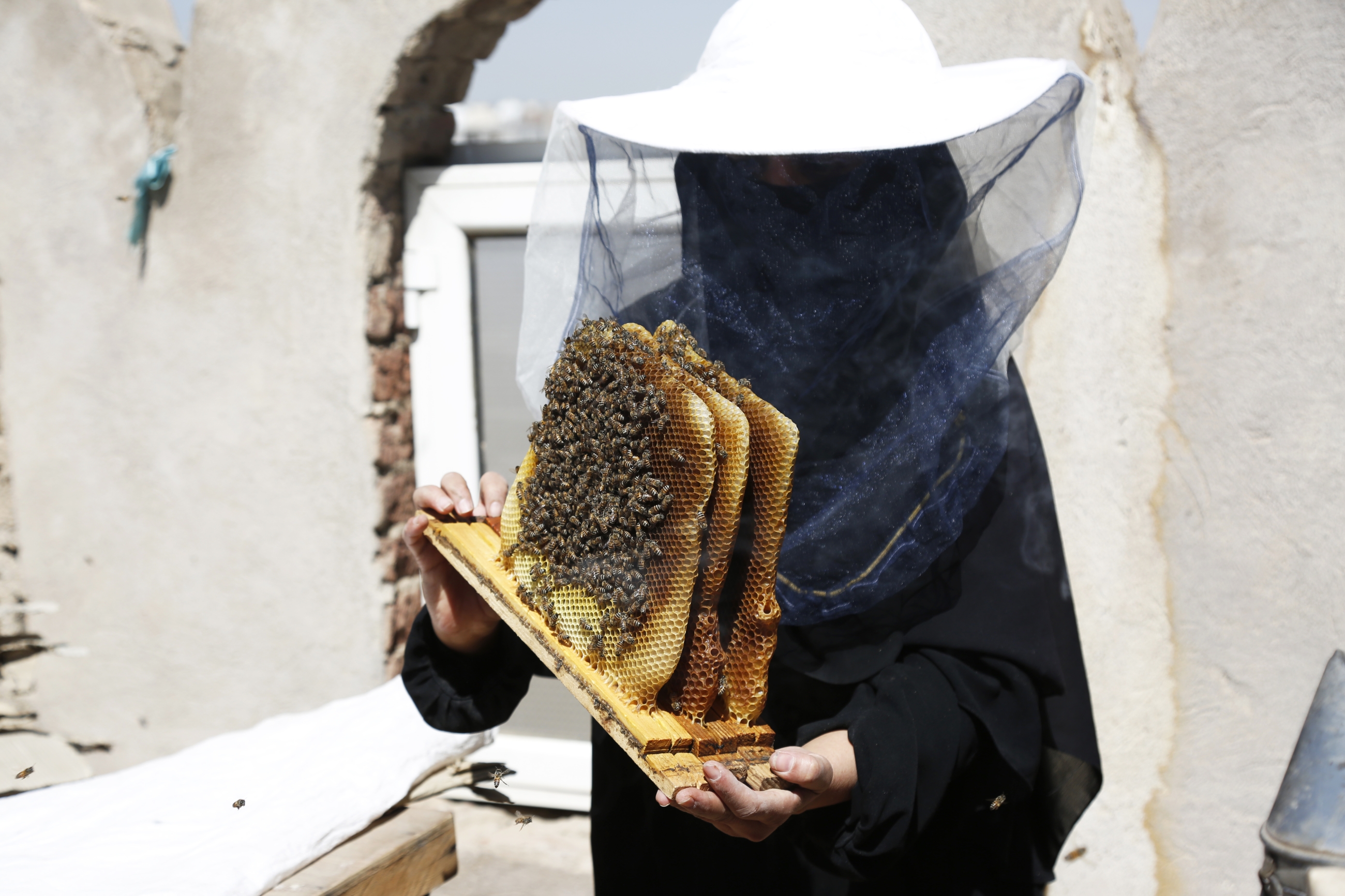
In pictures: Yemen’s female beekeeper
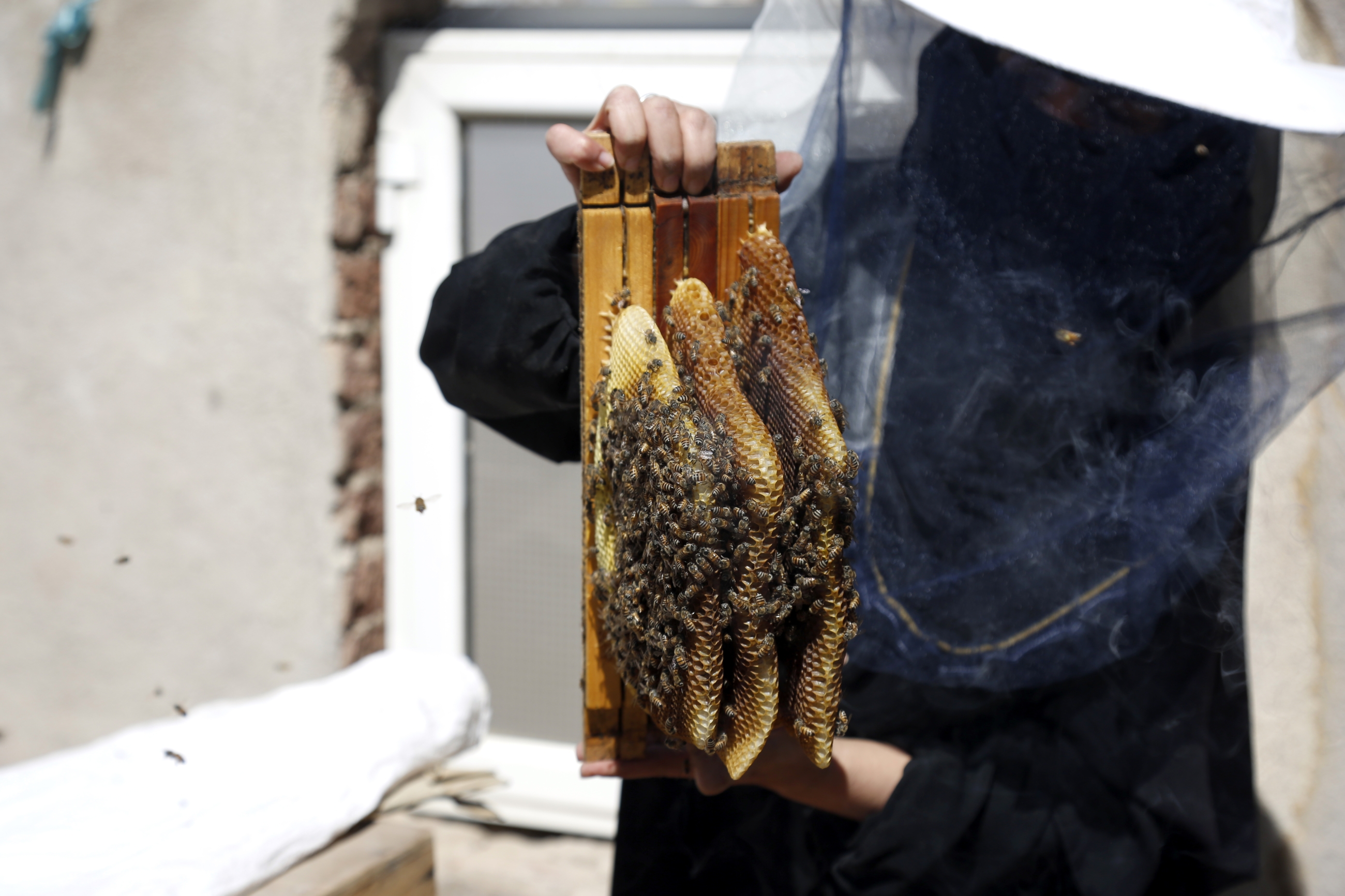
Despite Yemen being embroiled in a war that has ravaged the country and impacted numerous industries, beekeeping is thriving. Although beekeeping was traditionally seen as a man’s job in Yemen, Elham Saleh, who lives in Sanaa, is proving to be tough competition for those who have been involved in the job for generations.
“I’ve worked in beekeeping now for five years," Saleh told Middle East Eye. "I started as a hobby; but when the bees are seen in the house, this is an indication that you are familiar with how to deal with bees and the production of honey."
(All photos by Mohammed Hamoud.)
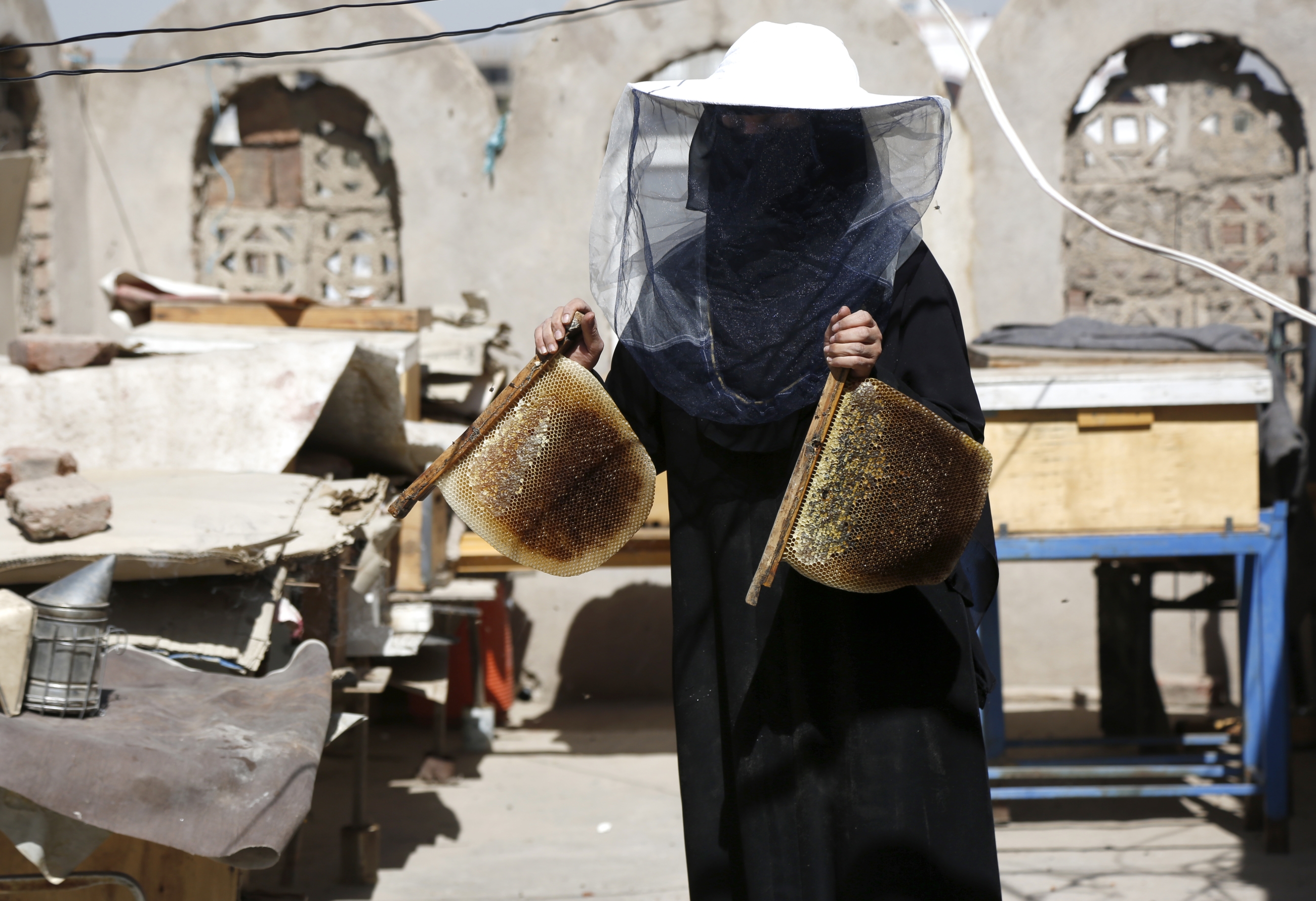
Saleh comes from a family of beekeepers, and grew up watching her grandparents take care of the bees and produce honey. After she took up beekeeping as a hobby, Saleh’s beehives soon doubled, allowing her to make an income from selling honey and hives. This success spurred her to learn more about proper beekeeping methods, handling the bees, and protecting them from other insects.
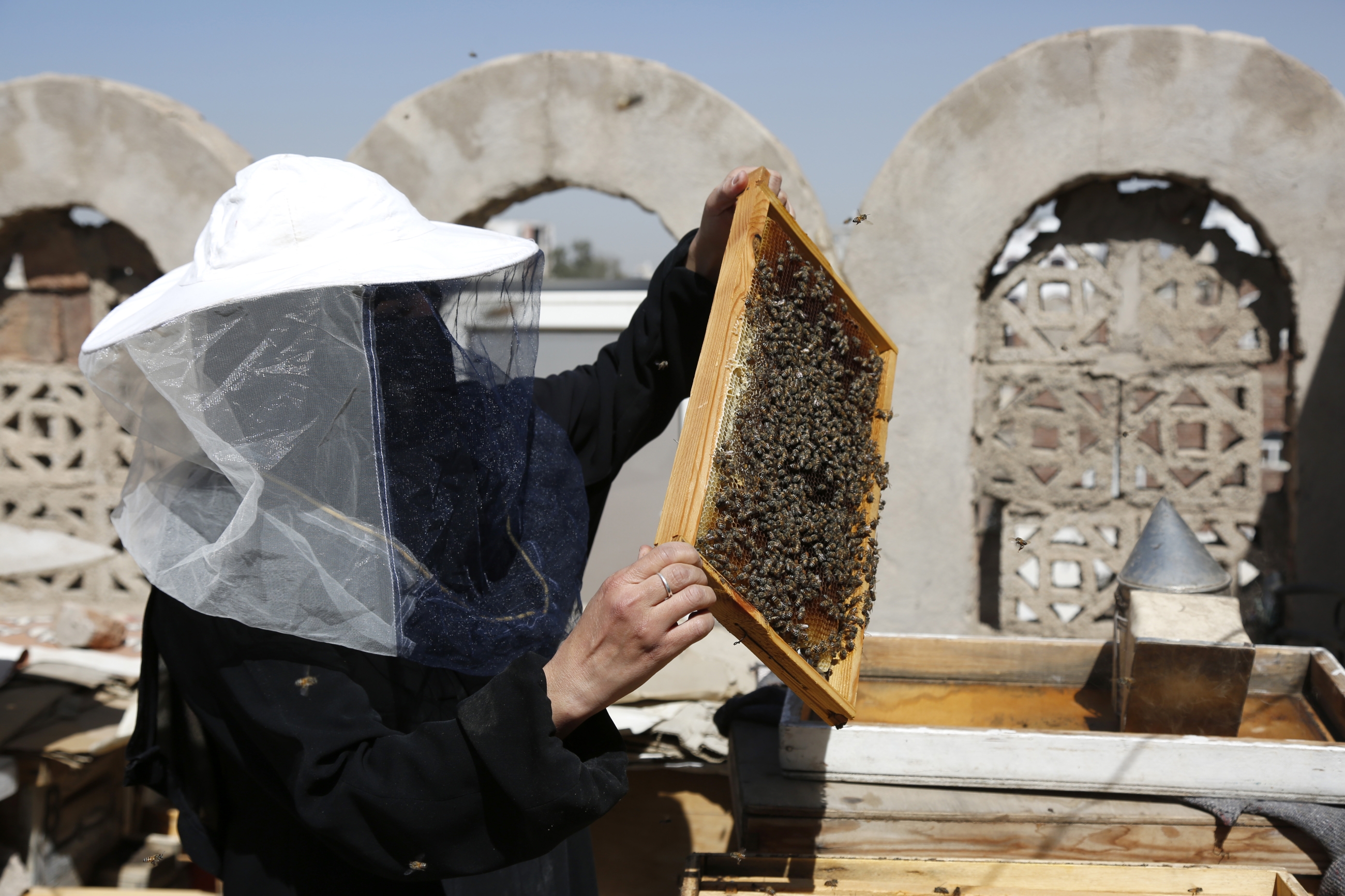
In spite of the social restrictions placed on women in some trades and professions, Saleh is determined to preserve the family tradition, and has maintained a space for bees to thrive on the rooftop of her family’s home in the heart of the capital.
“Anyone can do this and allow it to become a source of income,” she said, of a trade which is a key industry in Yemen. Today, Saleh not only looks after her own bees, she also sells beehives to travelling beekeepers, allowing them to generate a livelihood too.
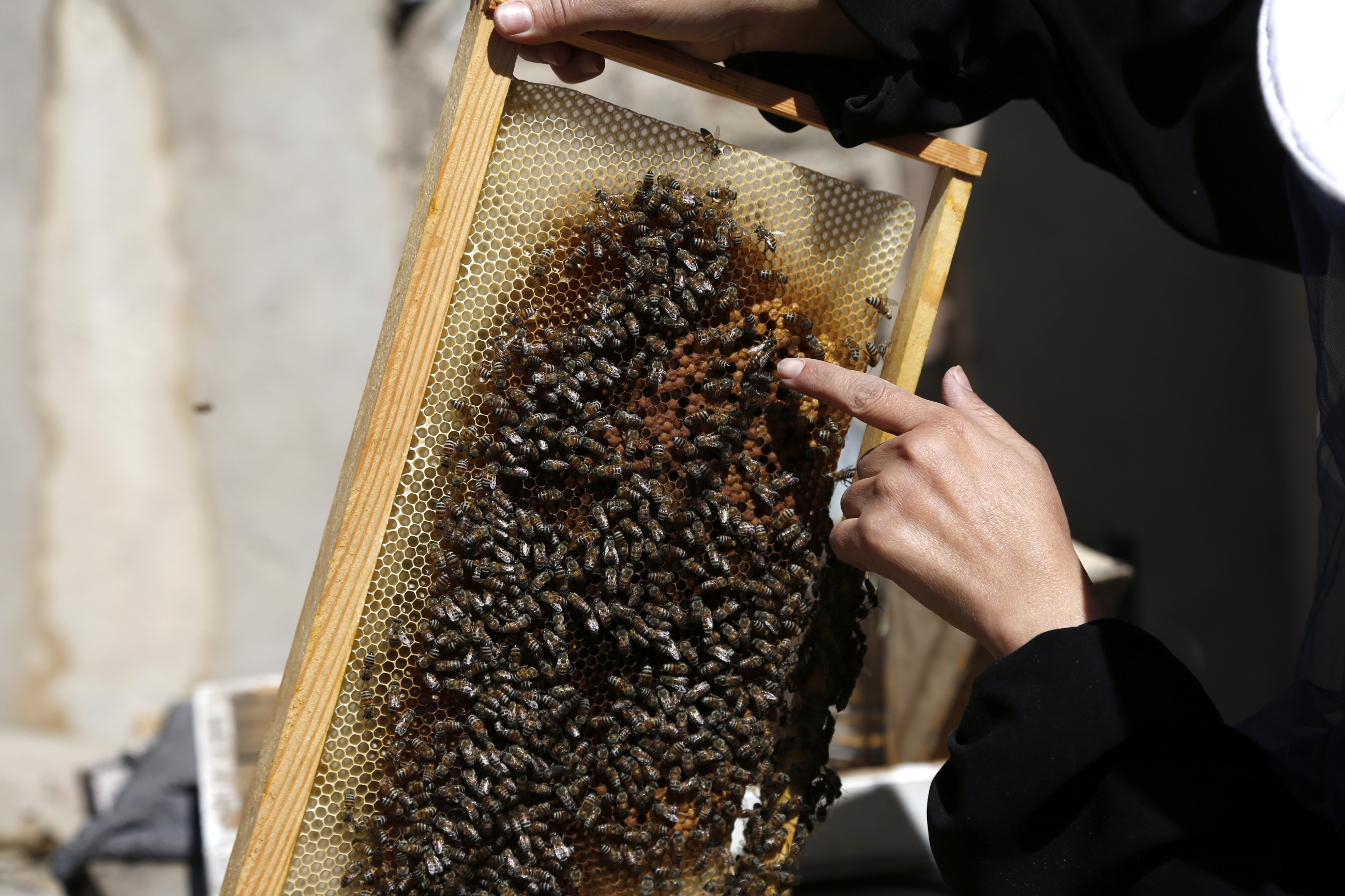
However, living in a war-torn country poses challenges. Since starting as a beekeeper Saleh has had to clear many hurdles, particularly with regard to a scarcity of vegetation, which is required by bees. In Sanaa, she explains, urban expansion has resulted in a lot of trees and orchards being cut down, as well as an increase in pollution.
“During the war especially, vegetation has become very scarce, which hinders finding pastures for bees, particularly as most people are unable to plant, irrigate and cultivate fields themselves,” she said.
Due to the shelling, air strikes, bombing and landmines which have become a regular occurrence in Yemen in recent years, Saleh has not been able to travel around as beekeepers do traditionally, due to the risks.
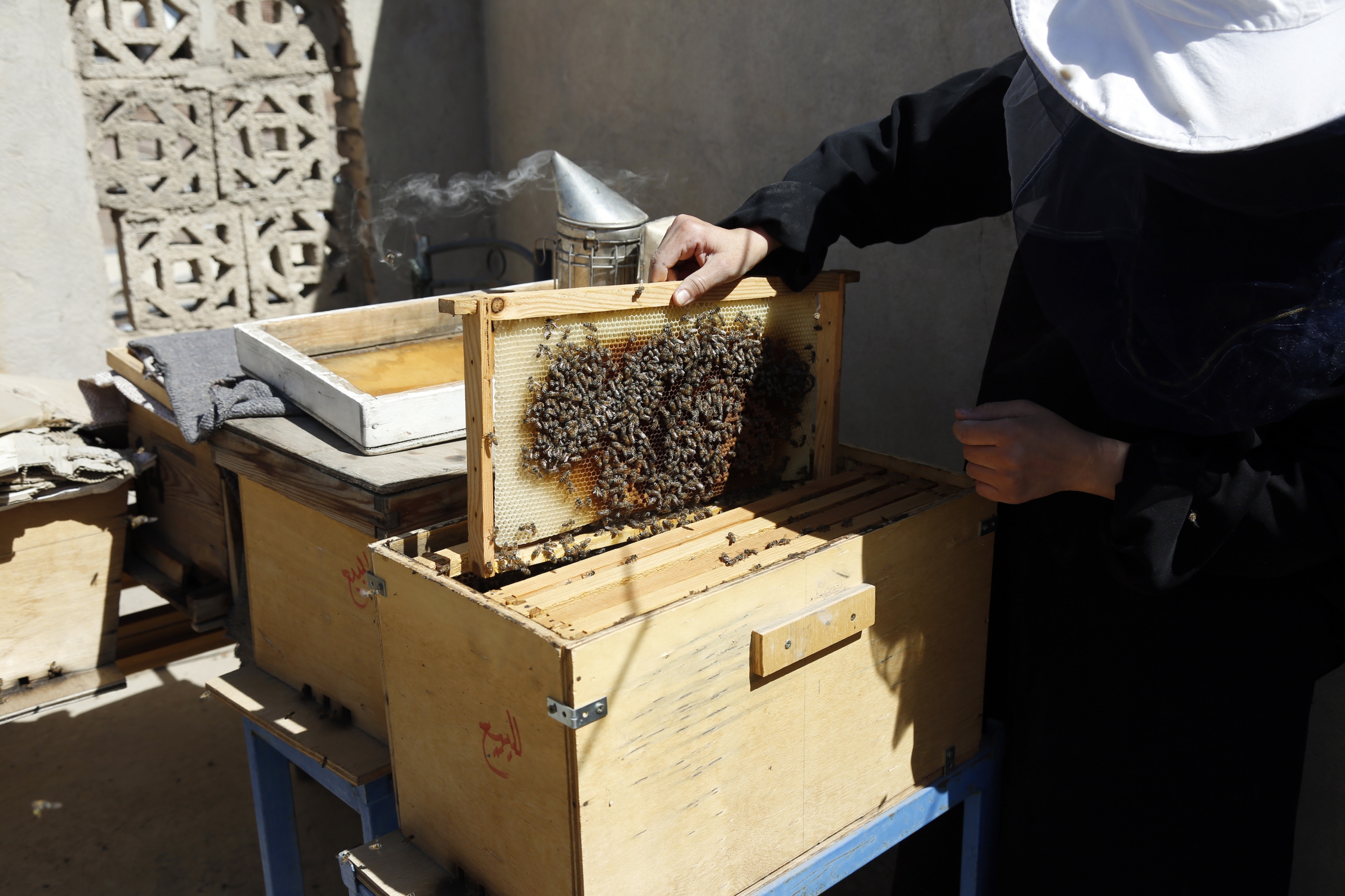
Beekeeping and producing honey is an important element of Yemeni culture. Honey is produced in various regions across the country, with the best quality of honey being the Sidr, which is largely found in the cities of Hadramout and Wadi Dawan. According to a 2020 UN report, small-scale beekeepers like Saleh produce around 1,580 tonnes of honey a year in Yemen, of which 840 tonnes are exported.
The honey produced is renowned worldwide for its rich and aromatic flavour, medicinal qualities and distinctive taste. The monofloral honey taste is particularly prized, because the bees that produce it generally only gather nectar from one type of flower, and because no chemicals are used on the flowers.
The honey has a pale gold colour and a sharp taste, which many people - especially in the Gulf Arab countries - enjoy, and they will pay high prices for it.
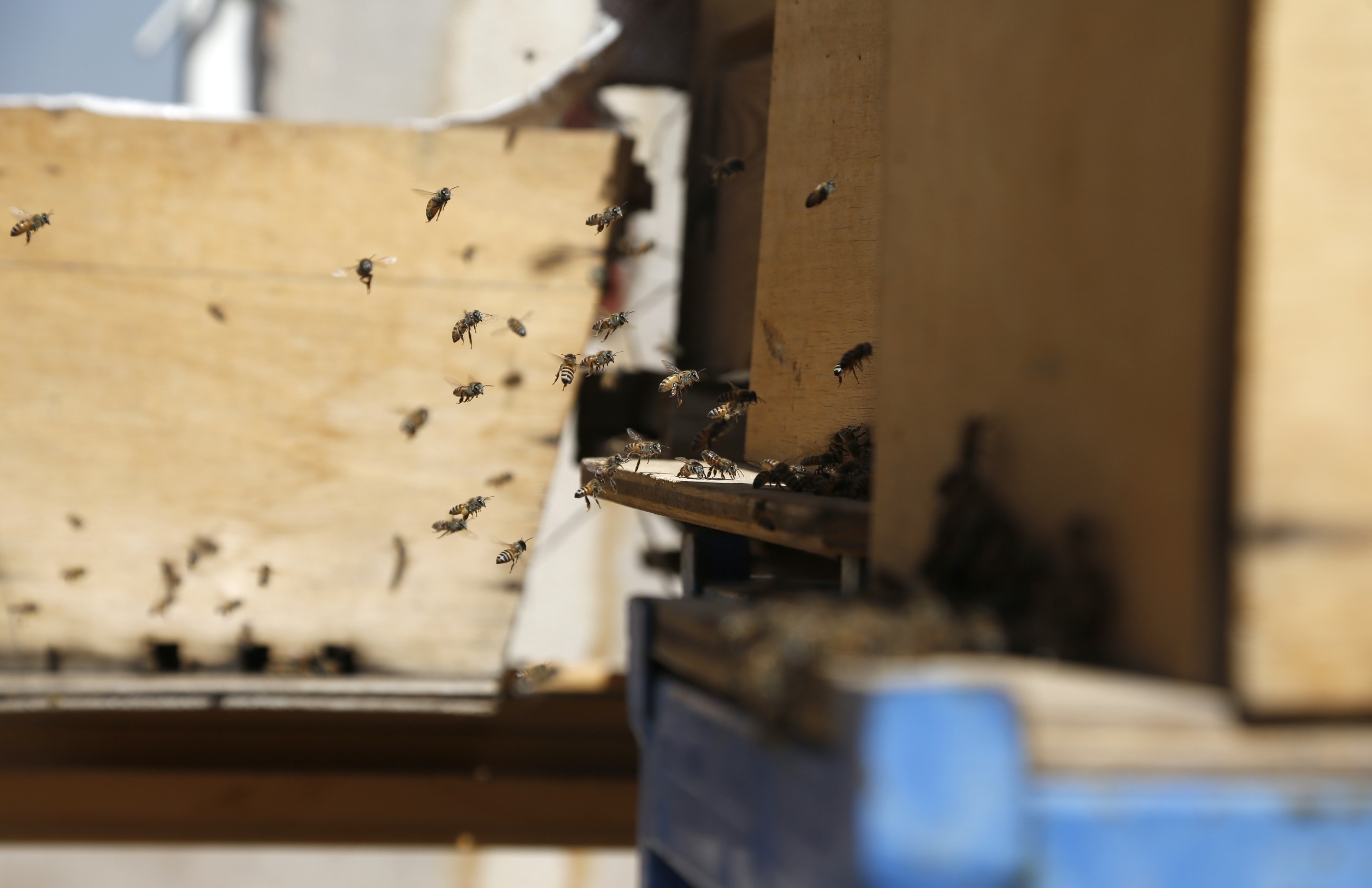
The Yemeni bee is also special due to it being a rare breed, and one which has been in the country since ancient times. Yemeni bees have the ability to adapt to different environmental conditions and build honeycombs on their own, without the assistance of beekeepers.
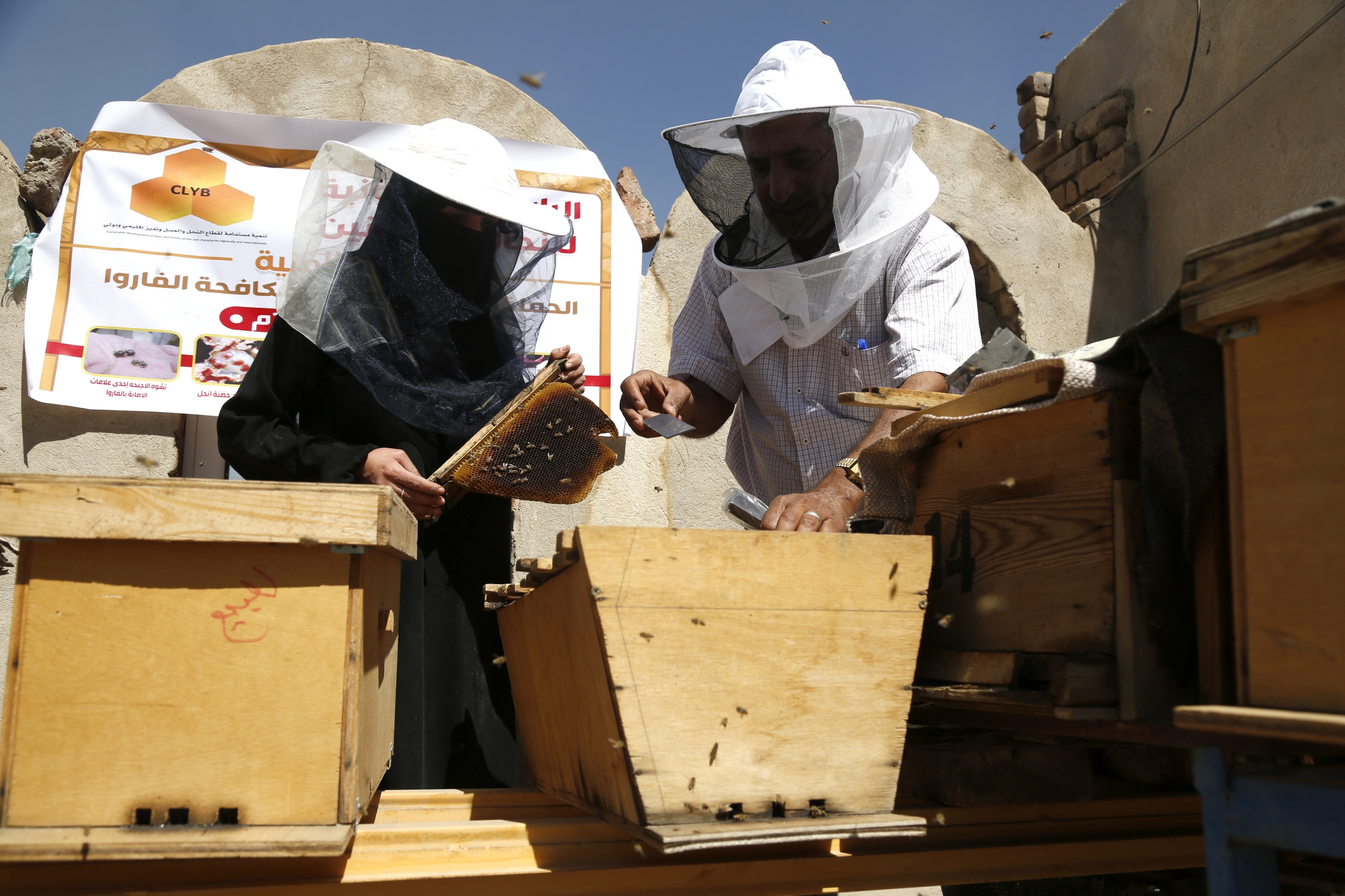
Today, Saleh owns 17 beehives, and in an effort to expand her project she has enlisted the help of the Yemeni Beekeepers Association. The local association, founded and headed by Dr Abdullah Nasher, 55, gives people the opportunity to attend courses on correct breeding techniques, as well as how to preserve beehives and extract honey.
Nasher, who is also a professor at the Faculty of Agriculture at Sanaa University, connects beginners like Saleh with honey traders. The traders and beekeepers will purchase beehives every year and move them from one region to another, allowing the distinguished honey to be harvested around the country.
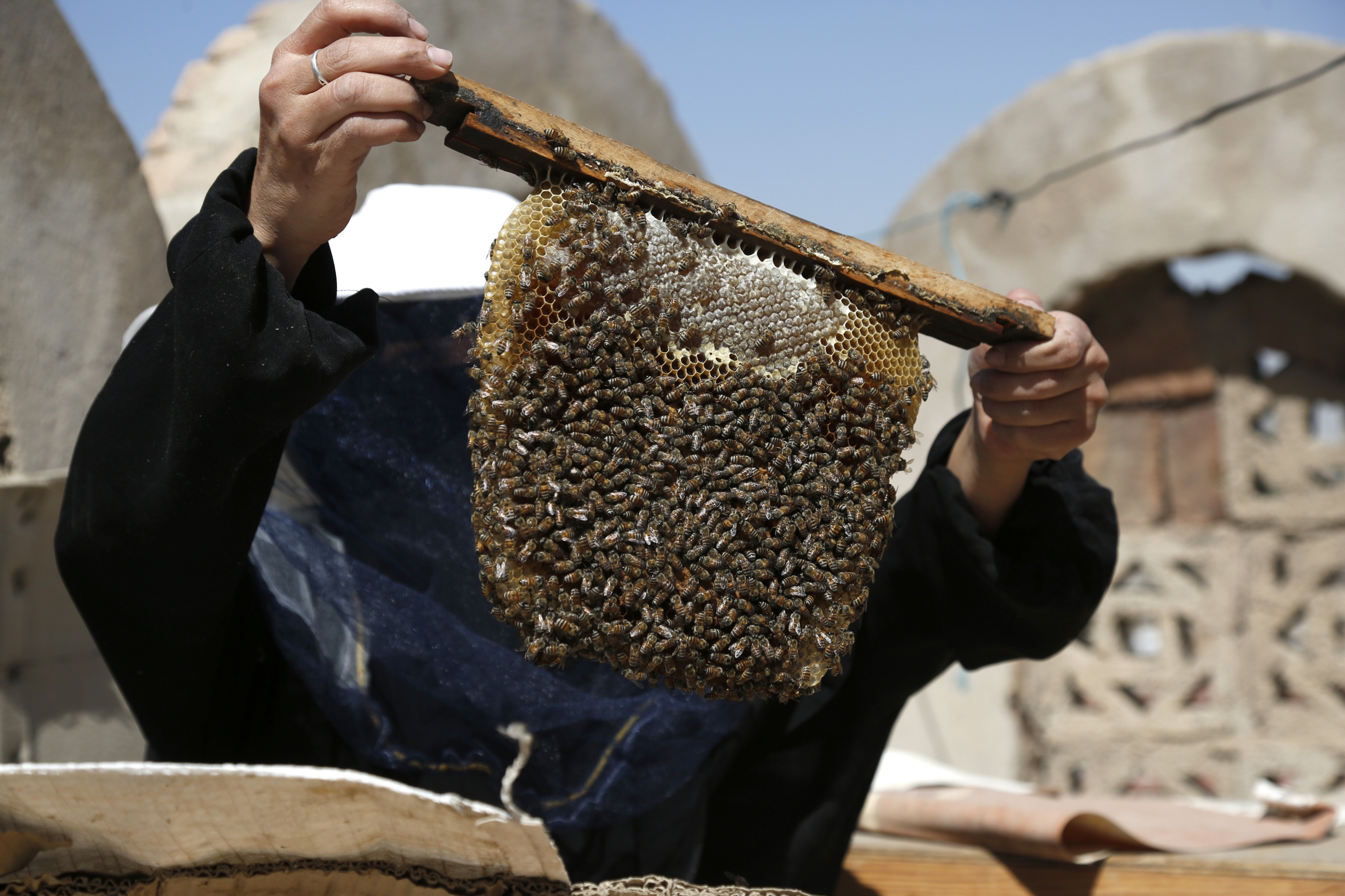
Nasher says his association's goal is to help struggling families who have felt the consequences of war. “These are small projects that generate revenue for families, allowing them to live in a dignified way,” he told Middle East Eye. The organisation also provides beekeepers with technical and material support, giving their business and livelihood a kickstart.
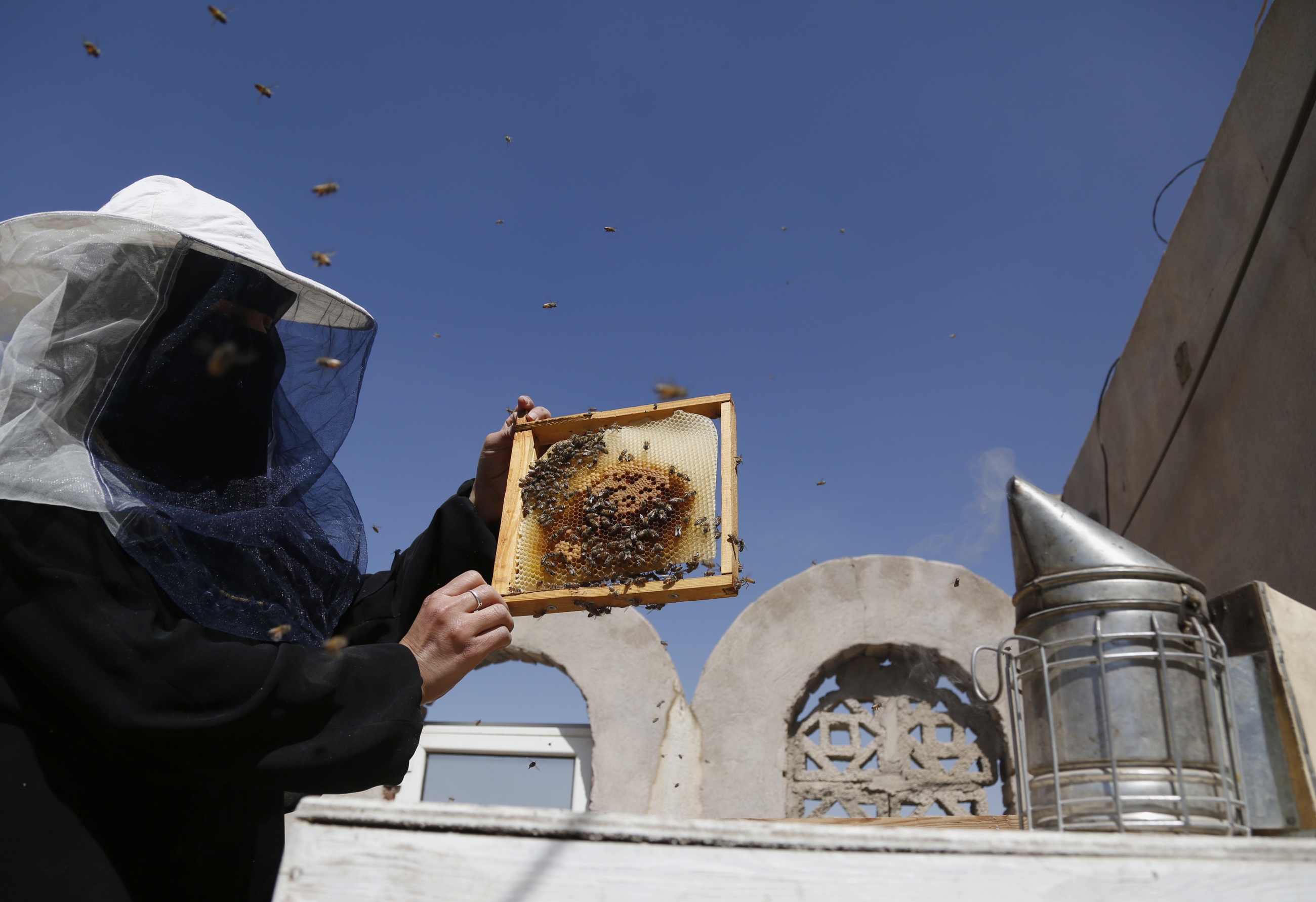
Saleh uses the income she makes from beekeeping to support her family, and to assist her father in caring for their family. The remainder of the revenue is re-invested into beekeeping, making sure the bees are taken care of and in good condition.
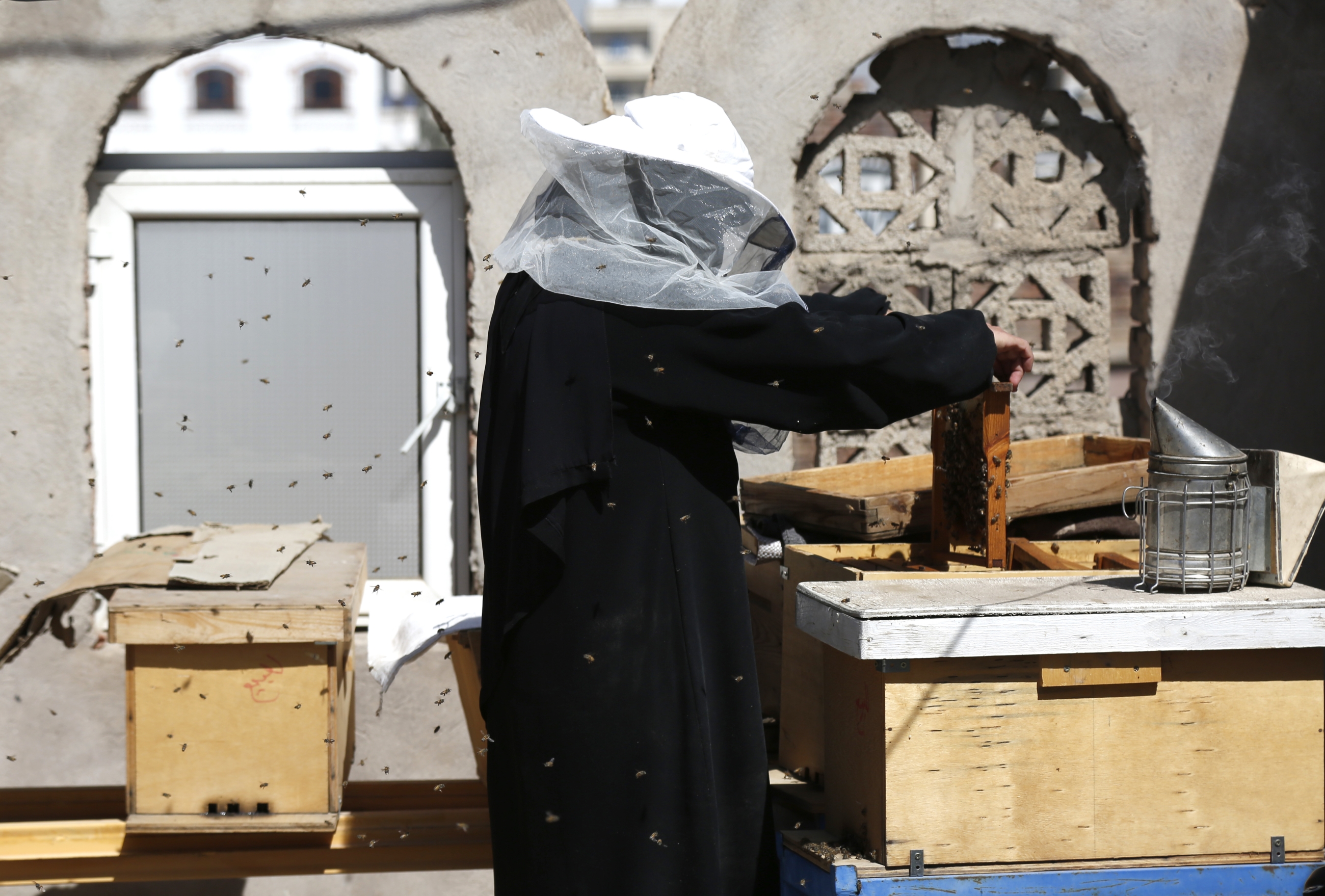
Beekeeping has provided Saleh not only with income and a career, but with hope too. She wants to expand the project and move to a larger location in the future. One of her main aims is to inspire others to get involved in the practice, saying that she hopes to see every Yemeni home with a beehive, because of its benefits.
Saleh also hopes for stability to return to Yemen, so that other beekeepers, like her, can travel around freely without fear or risks.
Middle East Eye delivers independent and unrivalled coverage and analysis of the Middle East, North Africa and beyond. To learn more about republishing this content and the associated fees, please fill out this form. More about MEE can be found here.


